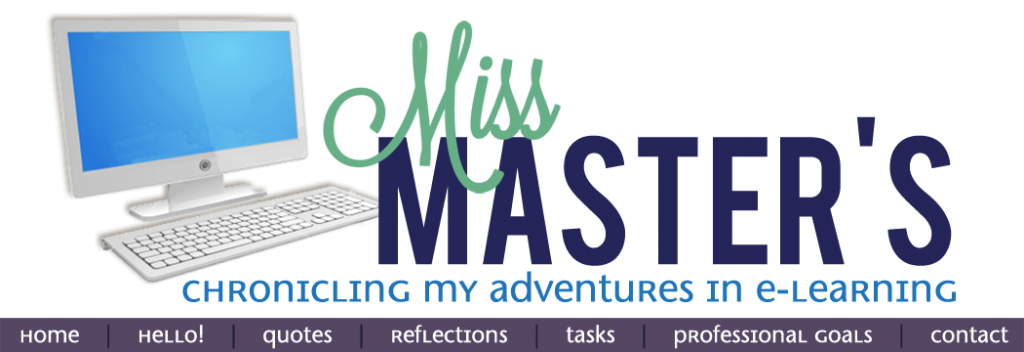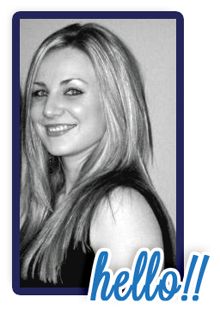Hello Everyone! Here are some great resources provided to me by Walden University. I have also added some of my own to the list and will continue to add more... Hope they help!
§ NAEYC.
(2009). Developmentally appropriate practice in early childhood programs serving
children from birth through age 8. Retrieved
May 26, 2010, fromhttp://www.naeyc.org/files/naeyc/file/positions/dap
§ NAEYC.
(2009). Where we stand on child abuse prevention. Retrieved
May 26, 2010, fromhttp://www.naeyc.org/files/naeyc/file/positions/ChildAbuseStand.pdf
§ NAEYC.
(2009). Where we stand on school readiness. Retrieved
May 26, 2010, fromhttp://www.naeyc.org/files/naeyc/file/positions/Readiness.pdf
§ NAEYC.
(2009). Where we stand on responding to linguistic and cultural diversity. Retrieved
May 26, 2010, from http://www.naeyc.org/files/naeyc/file/positions/diversity.pdf
§ NAEYC.
(2003). Early childhood curriculum, assessment, and program evaluation: Building
an effective, accountable system in programs for children birth through age 8. Retrieved
May 26, 2010, from http://www.naeyc.org/files/naeyc/file/positions/pscape.pdf
§ NAEYC.
(2009, April). Early childhood inclusion: A summary. Retrieved
May 26, 2010, fromhttp://www.naeyc.org/files/naeyc/file/positions/DEC_NAEYC_ECSummary_A.pdf
§ Zero to
Three: National Center for Infants, Toddlers, and Families. (2010). Infant-toddler policy agenda. Retrieved
May 26, 2010, from http://main.zerotothree.org/site/PageServer?pagename=ter_pub_infanttodller
§ FPG Child
Development Institute. (2006, September). Evidence-based practice empowers early childhood professionals and
families. (FPG Snapshot, No. 33).
Retrieved May 26, 2010,from http://community.fpg.unc.edu/sites/community.fpg.unc.edu/files/imce/documents/FPG_Snapshot_N33_EvidenceBasedPractice_09-2006.pdf
§ Turnbull,
A., Zuna, N., Hong, J. Y., Hu, X., Kyzar, K., Obremski, S., et al. (2010). Knowledge-to-action guides. Teaching Exceptional Children, 42(3),
42-53.
§ Article: UNICEF
(n.d.). Fact sheet: A summary of the rights under the Convention on the Rights of
the Child. Retrieved May 26, 2010,
from http://www.unicef.org/crc/files/Rights_overview.pdf
§ Websites:
§ World
Forum Foundation
http://worldforumfoundation.org/wf/wp/about-us
This link connects you to the mission statement of this organization. Make sure
to watch the media segment on this webpage
§ World
Organization for Early Childhood Education
http://www.omep-usnc.org/
Read about OMEP’s mission.
§ Association
for Childhood Education International
http://acei.org/
Click on “Mission/Vision” and “Guiding Principles and Beliefs” and read these
statements.
§ Selected
Early Childhood Organizations
§ National
Association for the Education of Young Children
http://www.naeyc.org/
§ The
Division for Early Childhood
http://www.dec-sped.org/
§ Zero to
Three: National Center for Infants, Toddlers, and Families
http://www.zerotothree.org/
§ WESTED
http://www.wested.org/cs/we/print/docs/we/home.htm
§ Harvard
Education Letter
http://www.hepg.org/hel/topic/85
§ FPG Child
Development Institute
http://www.fpg.unc.edu/
§ Administration
for Children and Families Headstart’s National Research Conference
http://www.acf.hhs.gov/programs/opre/hsrc/
§ HighScope
http://www.highscope.org/
§ Children’s
Defense Fund
http://www.childrensdefense.org/
§ Center for
Child Care Workforce
http://www.ccw.org/
§ Council
for Exceptional Children
http://www.cec.sped.org/
§ Institute
for Women’s Policy Research
http://www.iwpr.org/
§ National
Center for Research on Early Childhood Education
http://www.ncrece.org/wordpress/
 § National
Child Care Association
§ National
Child Care Association
http://www.nccanet.org/
§ National
Institute for Early Education Research
http://nieer.org/
§ Pre[K]Now
http://www.pewstates.org/projects/pre-k- now-328067
§ Voices for
America’s Children
http://www.voices.org/
§ The Erikson
Institute
http://www.erikson.edu/
Here are some resources that I found interesting:
Early Childhood News (2008). The Professional Resource for
Teachers and Parents. Excelligence Learning Corporation, All
Rights Reserved. http://www.earlychildhoodnews.com/earlychildhood/article_view.aspx?ArticleID=715
University of Toronto, Fraser Mustard Institute of Human
Development. Retrieved from http://www.oise.utoronto.ca/humandevelopment/
Young Minds: The Voice of Young People’s mental health and
well being. Young Minds in Schools- Supporting the Emotional Well Being of
Children and Young People in Schools. Retrieved from http://www.youngminds.org.uk/training_services/young_minds_in_schools/wellbeing/att achment
 I really
liked these two quotes because I see a correlation between the two of them. I
have discussed the importance of differentiated instruction several times
throughout the duration of this course. I truly believe that a system involving
standardized testing benefits no one. The quote above explains the pressure put
upon children and families to perform a set of tasks rather than demonstrate
real learning. Children learn when they enjoy what they are doing, that is why
play-based learning driven by student questions, wonderings and motivation
often takes learning to a place that wasn't even imaginable. When students are
pressured into performing when they are not yet ready they often feel
resentment, stress and a dislike for school. We want our students to love
learning and to feel empowered when they surpass challenges and find success.
The second quote made me think about the many teachers who are stuck in their
ways and find it difficult to change their teaching style to meet the needs of
all of the children in their lives. It is our job as educator’s to find
strategies to motivate and reach our students, it is not their responsibility
to bend to our teaching style.
I really
liked these two quotes because I see a correlation between the two of them. I
have discussed the importance of differentiated instruction several times
throughout the duration of this course. I truly believe that a system involving
standardized testing benefits no one. The quote above explains the pressure put
upon children and families to perform a set of tasks rather than demonstrate
real learning. Children learn when they enjoy what they are doing, that is why
play-based learning driven by student questions, wonderings and motivation
often takes learning to a place that wasn't even imaginable. When students are
pressured into performing when they are not yet ready they often feel
resentment, stress and a dislike for school. We want our students to love
learning and to feel empowered when they surpass challenges and find success.
The second quote made me think about the many teachers who are stuck in their
ways and find it difficult to change their teaching style to meet the needs of
all of the children in their lives. It is our job as educator’s to find
strategies to motivate and reach our students, it is not their responsibility
to bend to our teaching style. 













